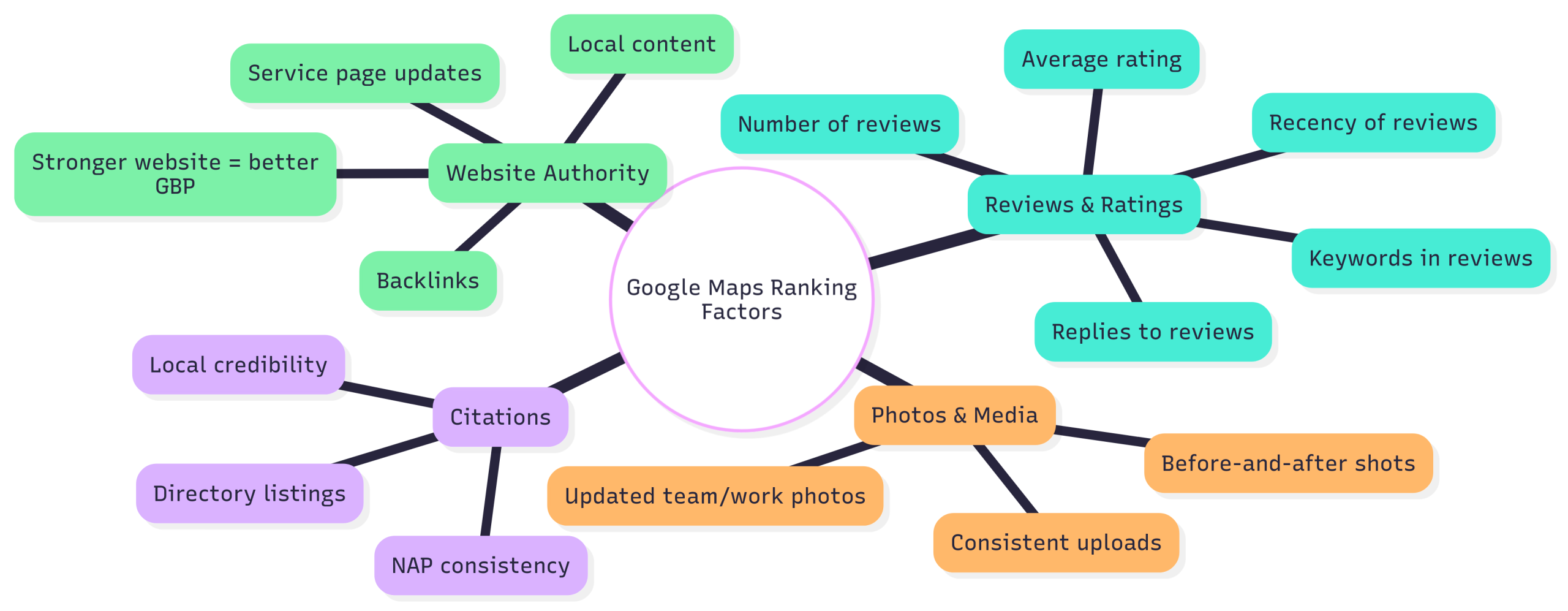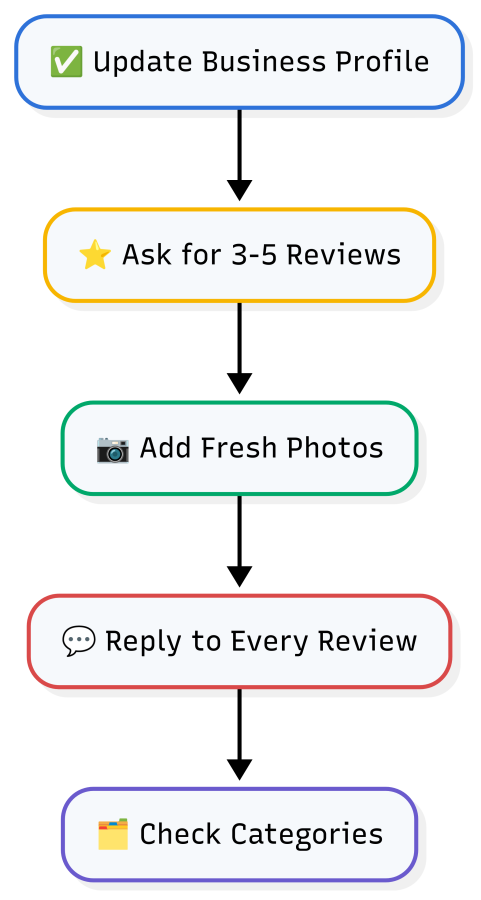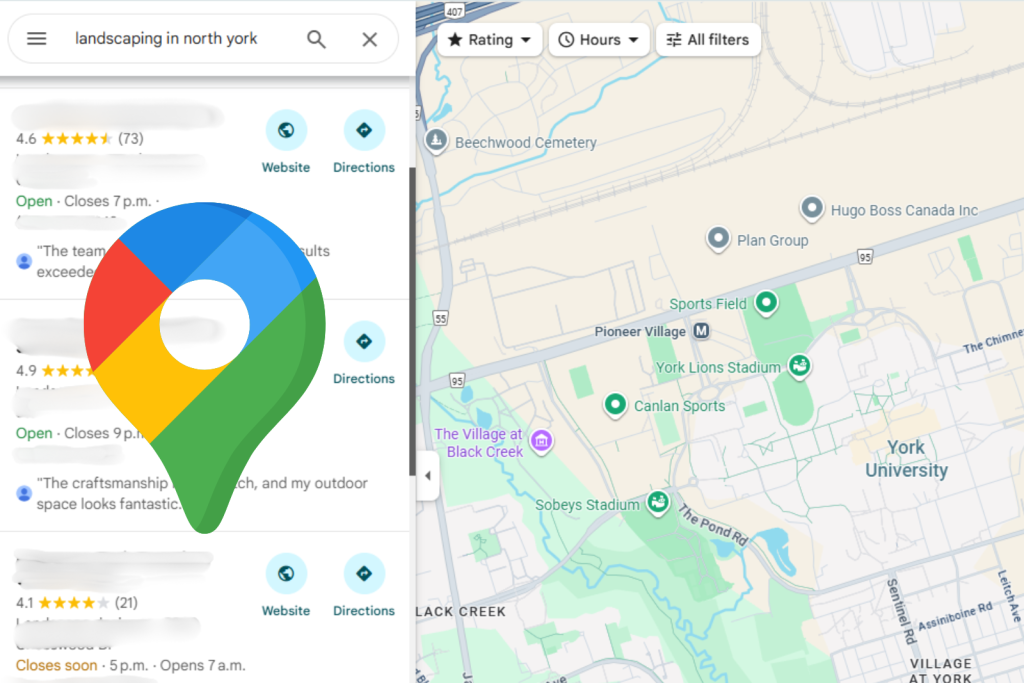So, you’ve typed your business into Google Maps – maybe “appliance repair near me” or “landscaping in [your city]” – and there’s your competitor, sitting pretty at the top. Meanwhile, you’re buried halfway down the list like an old phone book nobody wants to open. So why your competitors show up higher than you?
So the short answer is your competitor shows up higher on Google Maps because Google decides rankings based on three main factors: relevance, distance, and prominence. In plain English, it’s not just about being on Google Maps – it’s about how well your business profile matches what people are searching for, how close you are to them, and how much credibility Google thinks you have compared to others.
Frustrating? You bet. Especially when you know you do good work, you’ve got happy customers, and yet somehow Google seems to think your competitor deserves more attention.
Let’s break it all down. Spoiler: it’s not random. Google isn’t throwing darts at a board. There are very real reasons they’re outranking you, and once you understand them, you can actually do something about it.
The 3 Big Factors Google Uses to Rank You on Maps
As we said Google is very clear about the three main ingredients when it comes to Maps rankings:
- Relevance – How closely your business matches what the searcher typed in.
- Distance – How close your business is to the person searching.
- Prominence – How well-known, established, and trusted your business looks online.
Think of it like this: Google wants to serve up the business that is most likely to solve the customer’s problem quickly and reliably. If your competitor checks more of these boxes than you do, they get the top spot.
Relevance: Are You Even Speaking Google’s Language?
Let’s say you run a plumbing company, but your Google Business Profile (GBP) just says “Tom’s Services.” Compare that to your competitor’s profile, which clearly says:
“24/7 Emergency Plumbing, Drain Cleaning & Water Heater Repair in Toronto.”
Guess who Google thinks is more relevant when someone types “emergency plumber Toronto”?
Relevance comes down to:
- The categories you’ve chosen in your GBP (are you set as the right primary category?)
- The services and products you’ve listed
- The keywords in your business description
- The content on your website linked to your profile
👉 Fix it tip: Log into your GBP and make sure your business name, categories, and services are crystal clear. Don’t get cute or vague – spell out exactly what you do and where you do it.
Distance: The One Thing You Can’t Control (Mostly)
Here’s the truth: if someone searches “roofer near me” while sitting across the street from your competitor, there’s a good chance your competitor will show up first. Google knows where the searcher is and prioritizes businesses close by.
That said, you can still play the distance game a little:
- Make sure your address is accurate and verified on GBP.
- If you serve multiple areas, list your service areas properly in your profile.
- On your website, mention the neighborhoods or cities you serve – don’t just say “Florida”
👉 Fix it tip: Create service area pages on your website (e.g., “Appliance Repair in Boca Raton,” “Appliance Repair in Tampa”). This gives Google more confidence that you serve those locations.
Prominence: The Secret Sauce Your Competitor Probably Has
Prominence is where the Google Maps Optimization game is usually won or lost. This is Google’s way of asking: “How much do people trust this business?”
Here’s what plays into it:

1. Reviews and Ratings
This one’s huge. If your competitor has 85 reviews with a 4.9-star average and you have 12 reviews with a 4.2-star average, guess who looks better?
Google notices not just the number of reviews, but also:
- How recent they are
- What people write in them (keywords like “best electrician in Miami” help)
- Whether you reply to reviews (yes, Google cares about that!)
👉 Fix it tip: Actively ask happy customers for reviews after every job. Don’t just say “leave us a review” – send them the direct link and make it easy.
2. Photos & Media
A profile with updated photos of your team, your work, and even your storefront is more attractive than one with a blurry logo from 2009.
👉 Fix it tip: Upload fresh photos monthly. Before-and-after shots are gold.
3. Citations (Directory Listings)
If your business info (name, address, phone number) is consistently listed across the web (Yelp, YellowPages, BBB, local chamber of commerce), it boosts your credibility. If your competitor is in 50 directories and you’re in 5, they look more “real” to Google.
👉 Fix it tip: Make sure your NAP (name, address, phone) is consistent everywhere. Even small typos hurt.
4. Website Authority
Your Google Business Profile is tied to your website. If your competitor has a stronger website (more pages, local content, backlinks from other sites), that authority rubs off on their GBP ranking too.
👉 Fix it tip: Keep your website alive. Post local blog content, update your services pages, and try to get links from local blogs or partners.
Common Mistakes That Tank Your Ranking
Sometimes it’s not that your competitor is doing amazing things — it’s that you’re making mistakes that hold you back. Here are some common ones:
- Keyword stuffing your business name → Adding “Best Cheap Plumber Toronto 24/7” might help short-term but can get flagged.
- Wrong category → If you’re a landscaper but your category says “Gardening Store,” you’re confusing Google.
- Inactive profile → If you never update your GBP, Google assumes you’re not active.
- Bad reviews with no response → Silence makes it look like you don’t care.
Quick Wins: What You Can Do This Week
If you’re feeling overwhelmed, start small. Here are a few things you can do this week to move the needle:
- Update your business profile → Add services, products, and a detailed description.
- Ask for 3-5 reviews → Call or text your best customers and send them the review link.
- Add fresh photos → Showcase your work or your team.
- Reply to every review → Even the old ones. Show you’re engaged.
- Check your categories → Make sure your primary category matches what people actually search for.

Long-Term Moves That Win the Game
If you want to consistently beat your competitors, here’s what you should pay attention to:
- Consistent reviews: Aim for steady growth, not 20 reviews in a week then silence.
- Local content: Blog posts, service area pages, and FAQs that mention your city/neighborhoods.
- Backlinks: Partner with local suppliers, charities, or newspapers to get mentioned online.
- Regular updates: Treat your GBP like social media. Post offers, updates, or tips.
- Community presence: Sponsoring a local event? Get a press release. Google notices that stuff.
So, What’s Now?
If your competitor shows up higher than you on Google Maps, it’s usually not luck. It’s because they’ve worked (or someone worked for them) on building relevance, distance, and prominence.
The good news? You can absolutely catch up. Google doesn’t play favourites – it rewards the businesses that look the most useful, trustworthy, and active.
So don’t just sit there wondering why your competitor keeps getting the calls. Roll up your sleeves, update your profile, ask for those reviews, and start building your local online presence.
You’ll be surprised how quickly the tide can turn once you start feeding Google the right signals.


